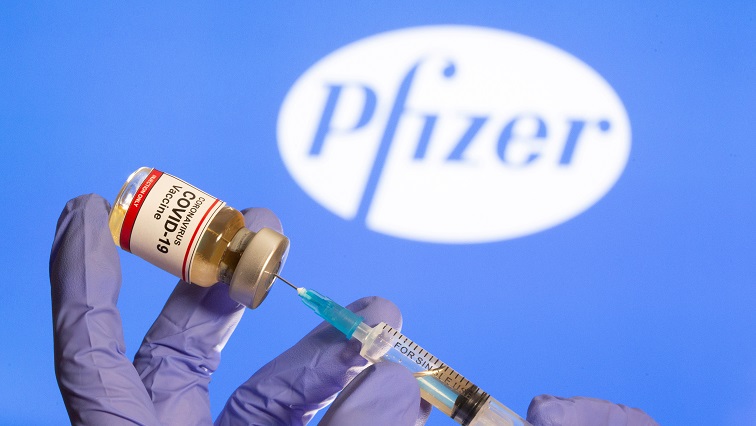South African scientists will meet on Thursday to discuss a laboratory study over the Pfizer/BioNTech vaccine’s efficacy against the coronavirus variant discovered in the country.
This follows the findings of a study that suggested the variant may reduce antibody protection from the vaccine by two-thirds.
Speaking to the Reuters News Agency, spokesperson for the Health Ministry Popo Maja says government will be guided by the recommendations of the scientists in the matter.
South Africa plans to start rolling out the Pfizer/BioNTech vaccine in the coming months.
Spokesperson for health regulator South African Health Products Regulatory Authority, Yuven Gounden said the Pfizer application was currently under review.
Pfizer-BioNTech vaccine appears effective against new coronavirus variants: Study
The Pfizer Inc and BioNTech’s COVID-19 vaccine appeared to work against the highly transmissible new variants of the coronavirus discovered in Britain and South Africa, according to a laboratory study conducted by the US drugmaker.
The study by Pfizer and scientists from the University of Texas Medical Branch, which has not yet been peer-reviewed, indicated the vaccine was effective in neutralising virus with the so-called N501Y variant of the spike protein.
The mutation could be responsible for greater transmissibility and there had been concern it could also make the virus escape antibody neutralisation elicited by the vaccine, said Phil Dormitzer, one of Pfizer’s top viral vaccine scientists.
The first results of tests on the variants offer a glimmer of hope while more studies are carried out as Britain and other countries try to tame the more infectious variants which authorities believe are driving a surge in infections that could overwhelm healthcare systems.
The Pfizer-BioNTech study was conducted on blood taken from people who had been given the vaccine. Its findings are limited because it does not look at the full set of mutations found in either of the new variants of the rapidly spreading virus.
WHO lists Pfizer/BioNTech vaccine for emergency use
The World Health Organisation in January listed the COVID-19 vaccine from Pfizer and BioNTech for emergency use, saying the move opens the door for countries to expedite their own approvals to import and give the shot.
Once a vaccine has been listed for WHO emergency use, the United Nations health agency said, it “engages its regional regulatory networks and partners to inform national health authorities on the vaccine and its anticipated benefits based on data from clinical studies to date.”
The WHO’s review found that the vaccine met the must-have criteria for safety and efficacy set out by WHO, and that the benefits of using the vaccine to address COVID-19 offset potential risks, the WHO said in a statement.
“This is a very positive step towards ensuring global access to COVID-19 vaccines. But I want to emphasize the need for an even greater global effort to achieve enough vaccine supply to meet the needs of priority populations everywhere,” said Dr. Mariangela Simao, WHO assistant-director general for Access to Medicines and Health Products.
The WHO, together with the GAVI Vaccine Alliance and the Coalition for Epidemic Preparedness Innovations (CEPI), are spearheading a global effort called COVAX to distribute vaccines to low- and middle-income countries, to help make sure that shots do not go only to wealthy nations.
The COVAX alliance has said it has agreements for nearly 2 billion doses, with first deliveries due in early 2021.
The alliance has said it has been in talks with Pfizer and BioNTech to secure a vaccine.
Pfizer and BioNTech’s messenger RNA vaccine was 95% effective at preventing disease symptoms after two doses 21 days apart. Delivery is challenging since it needs to be stored at minus 70 degrees Celsius.


